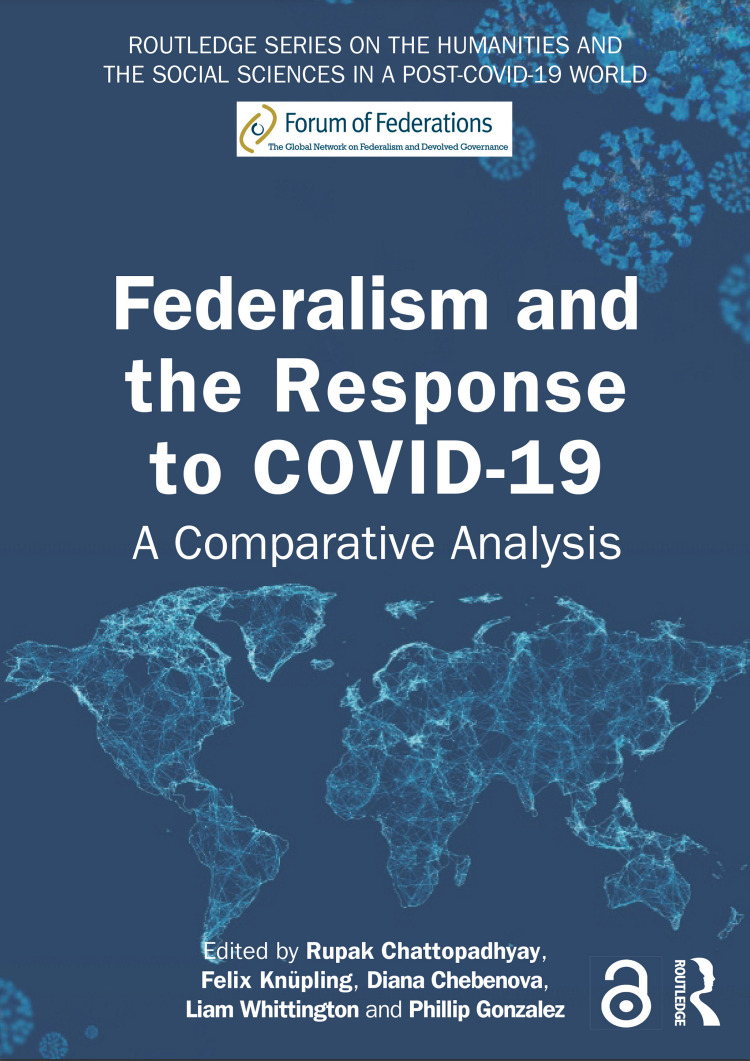Bibliothèque

Language:
EnglishTopic:
COVID-19 and FederalismCollection:
Livres ThématiquesAuthors:
Publication Year:
2021
The COVID-19 pandemic bared the inadequacies in existing structures of public health and governance in most countries. This book provides a comparative analysis of policy approaches and planning adopted by federal governments across the globe to battle and adequately respond to the health emergency as well as the socioeconomic fallouts of the pandemic. With twenty-four case studies from across the globe, the book critically analyzes responses to the public health crisis, its fiscal impact and management, as well as decision-making and collaboration between different levels of government of countries worldwide. It explores the measures taken to contain the pandemic and to responsibly regulate and manage the health, socio-economic welfare, employment, and education of its people. The authors highlight the deficiencies in planning, tensions between state and local governments, politicization of the crisis, and the challenges of generating political consensus. They also examine effective approaches used to foster greater cooperation and learning for multi-level, polycentric innovation in pandemic
governance. One of the first books on federalism and approaches to the COVID-19 pandemic, this volume is an indispensable reference for scholars and researchers of comparative federalism, comparative politics, development studies, political science, public policy and governance, health and wellbeing, and political sociology.

